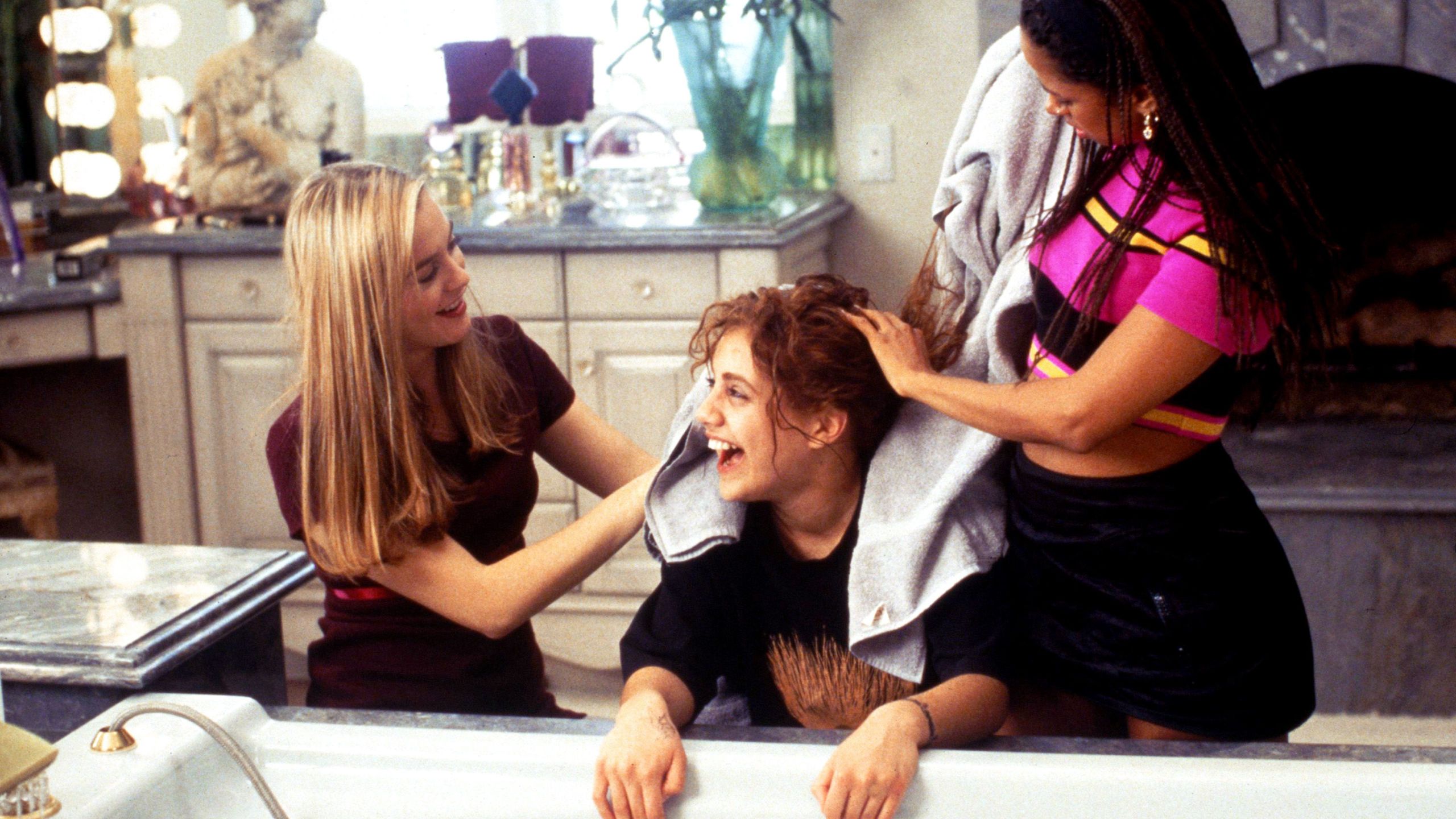The Love-Hate Relationship Every Girl Has with Movie Makeover Montages
In which we enjoy something while finding it problematic.

Some things can make any movie, however bad or Michael Bay-ish, better. A dance number. A wicked soundtrack. Meryl Streep! But throw in a makeover scene, and we'll at least give you a 60 percent on Rotten Tomatoes, even if it's a buddy comedy with Jeremy Renner, featuring Smash Mouth. Fine, an upper 50. Yet however enjoyable it might be to watch a diamond in the rough get shined up real pretty, it's hard to not be a little like, "Hmm, this changing-yourself-to-appeal-to-someone-else thing doesn't feel right, my dude."
Satisfying! But Paolo is so mean! And why can't a princess have Gucci hair anyway? To further investigate the Glow-Up Paradox, first, some thoughts.
Pros
- Makeovers are often set to Hoku or upbeat songs like Shura's "What's It Gonna Be?"
- As previously mentioned, they are extremely fun to watch because they involve clothes, and everybody likes clothes
- Trying on outfits
- Women bonding!
- The makeover-ee can emerge happier and more confident than before
- They suggest that someday, maybe someone will care or be bored enough to go through the trouble of conceptualizing and executing a vision for a different you
Cons
- They also suggest something was wrong with the makeover-ee in the first place
- They suggest that clothes and a nicer haircut can change your life, which they can, but also that is a dangerously simplistic way of thinking about self-improvement when it is the inner work that really matters
- Sometimes the makeover-ee doesn't like how it turns out
- Sometimes the makeover-ee becomes mean or not herself anymore, because somehow, getting hot = losing your way
- Nobody buys 784 new things all at once
- Usually, makeovers are for getting a love interest's attention, which is like, fine, okay, but that means they're kind of superficial, aren't they?
- Then the love interest does pay attention, which is both flattering and incredibly rude
- The makeover-ee is sometimes an unwilling participant
- It makes a mockery of the personal-style discovery, which ought to be long, arduous, and fraught with trauma unless you have the good fortune to have the conviction and necessary resources available to you at an early age
- Results aren't permanent, and if we expected to believe they are, that is completely ludicrous because a change you don't make for yourself will never stick (you just know Andy Sachs grew her bangs out as quick as she could after she escaped Miranda Priestly's clutches and that this is probably why they don't do "Where Are They Now" segments with the people from How Do I Look?, RIP)
It's an issue of identity and authenticity that can't be resolved in 90 minutes, but it can be bypassed for the sake of the woke viewer who also just wants to bob her head along and see some skirts being tossed around in peace. Maybe the makeover montage is best, then, when the middle bit with the whys and hows is omitted, like in the 1995 remake of Sabrina. Cut to Julia Ormond emerging fully formed, like a Parisienne butterfly. It's not character development, exactly, but at least it won't make you madder.
Follow Marie Claire on Facebook for the latest celeb news, beauty tips, fascinating reads, livestream video, and more.
Get exclusive access to fashion and beauty trends, hot-off-the-press celebrity news, and more.
Chelsea Peng is a writer and editor who was formerly the assistant editor at Marie Claire. She's also worked for The Strategist and Refinery29, and is a graduate of Northwestern University. On her tombstone, she would like a GIF of herself that's better than the one that already exists on the Internet and a free fro-yo machine. Besides frozen dairy products, she's into pirates, carbs, Balzac, and snacking so hard she has to go lie down.